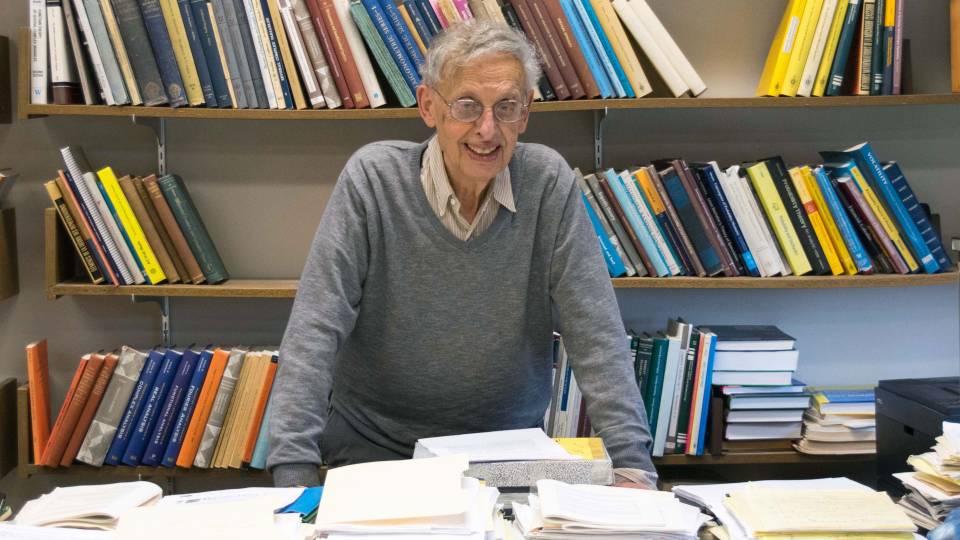Princeton University mathematician Elias Stein has been selected to receive the National Medal of Science in recognition of his contributions to harmonic analysis, an area of mathematics that has applications throughout the sciences.
Stein, the Albert Baldwin Dod Professor of Mathematics, is one of 15 scientists selected to receive the award, which is the nation's highest scientific honor. President George Bush will bestow the medals at a White House ceremony June 13.
Stein's research focuses on a set of mathematical techniques, called harmonic analysis, originally developed to understand physical phenomena such as sound and light. Physicists and engineers, for example, use harmonic analysis to determine what mixture of frequencies, or colors, are present in a beam of light.
Stein has pioneered the development of these tools into techniques for tackling problems in many areas of abstract mathematics, such as partial differential equations, several complex variables, representation theory and probability theory. Advances in these areas have, in turn, spawned important new applications in applied physics and engineering.
"Eli Stein is certainly a superb mathematician whose work has had a lasting impact on many areas of research," said President Shirley M. Tilghman. "He also has devoted great energy and skill to his teaching. He cares deeply about his students and conveying to them the beauty of mathematics."
Stein's award brings to 14 the number of Princeton faculty members who have received the National Medal of Science. Princeton astrophysicist Jeremiah Ostriker was a recipient in December 2000, the last time the awards were given.
The National Medal of Science was established by Congress in 1959 and is administered by the National Science Foundation . A 12-member presidentially appointed committee reviews nominations and recommends potential recipients to the president.
Read the news release for the full story.
Contact: Marilyn Marks (609) 258-3601
